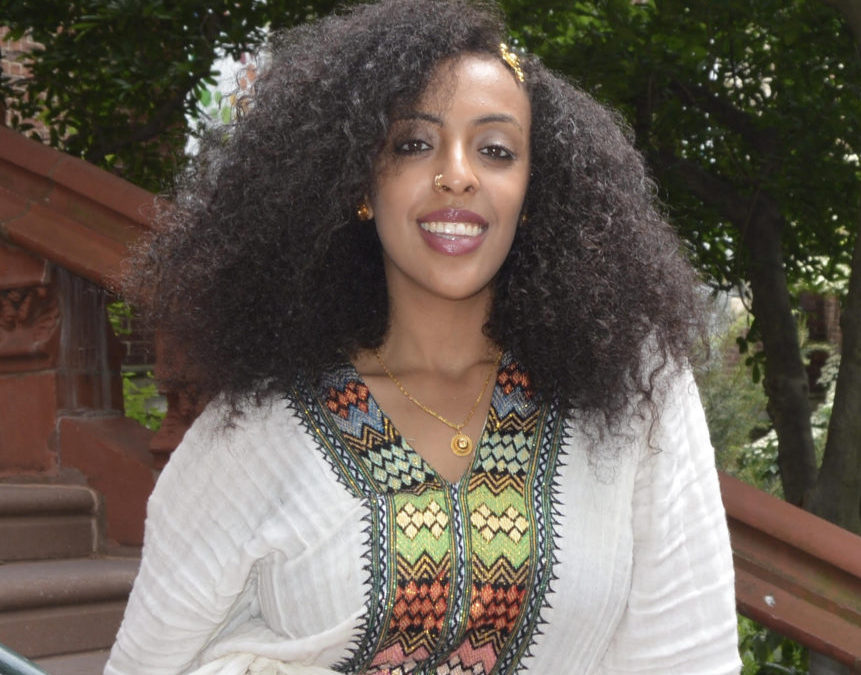This month’s spotlight features Shamm Petros, Partner and Director of Learning and Evaluation at the Lion’s Story, an organization working to increase racial literacy. Read more to learn about Shamm and her work centered on providing radical racial healing.
Could you briefly explain some of your responsibilities in your current career role?
As Partner and Director of Learning and Evaluation at the Lion’s Story, I am chiefly responsible for translating emergent research in racial threat response management into programming that can be offered across schools, organizations, and corporations. This role also calls on me to shape the learning of not only the recipients of our services, but the very people that will deliver said services, a team of about 30 Trainers. Additionally, I took on a role as an Adjunct Professor at the Graduate School of Education at the University of Pennsylvania. I will be teaching a class this semester in the Counseling and Mental Health Services Department, on topics of socio-cultural interventions, psychopathology, and family therapy.
You are currently the Clinician, Researcher & Program Developer at Lion’s Story. What are some of the issues you are tackling in your current role pertaining to mental health?
At the nexus of a racial and public health pandemic in early 2020, the Lion’s Story Village faced a world systemically impacted by racial stress. With a commitment to building a racially literate world and honoring a history of evidence-based research, Lion’s Story made the necessary but calculated operational pivot to be able to deliver our services virtually. In my role, I lead the transition into virtual programming as well as the expansion of our curriculum to help individuals face not only persistent racial stress but acute stress that might emerge in the workplace.
How did you come to decide that this was the right career path for you?
In all honesty, I am still building the staircase to my dream career. I will not be happy unless I am directly serving Black migrant children in one capacity or another. My vision for my career includes a network of safe healing and learning spaces for migrant children across the world. The skills I am building now at Lion’s Story and UPenn are better preparing me to pursue my vision.
Did you face any criticism or stigma as a result of pursuing a career in mental health from family and friends?
Worse than the criticism or stigma I received, was the fear that occupied me about the unknowns in my career. To this day, I have yet to meet any other professional doing what I want to do, and there is some loneliness and fear in that solitude. On the other side of the spectrum, I am motivated by the novelty and gifts I can offer to this field.
What skills have you found vital to your job?
Having or developing keen observation skills is vital in all my roles. As a therapist, I was taught to listen in graduate school. As an immigrant child, I was forced to listen to my whole life. I don’t limit the skills of observation to a singular biological function. In fact, I believe the ability to precisely observe demands our physical, emotional, and cognitive resources. In my roles, I am tasked to observe, dissect, digest, and diagnose individuals, students, relationships, organizations, and expansive networks. I do so by observing behaviors, thoughts, reactions, progress, and other metrics.
What are the most rewarding and challenging aspects of your career?
If you could dwindle down all of my jobs/roles to one thing, it is to help people fall in love with their stories. Following in the legacy of my mentor Dr. Howard C. Stevenson, I want to dedicate myself to that work. In falling in love with our stories I believe we can all find radical healing. Whenever I get to witness a glimpse of that process in my coworkers, clients or students, I am overjoyed with purpose and alignment.
How do you avoid burnout?
I only say yes to things that bring me great joy.
To date, what is your greatest professional accomplishment?
I can best categorize my young career into three chapters. My earlier work in refugee settings across East Africa and the Middle East, my current work in providing radical racial healing, and my future work with teaching Black migrant children to find power in their narratives. Across the board, through these chapters, I believe my greatest professional accomplishment has been my ability to shape a career dedicated to healing my inner child.
What else would you like to share with our readers about a career in mental health?
I find mental health services to be a critical service. Whether applied individually or to a group, it can be the key to sustainable change. This field has really offered me the opportunity to shape my dreams, not just my job. At only 29 I am able to lead a radical start-up dedicated to revolutionary change and occupy a platform through my teaching and community work that spans thousands. I believe this is a result of my dedication to the field of mental health, development and self-actualization.

